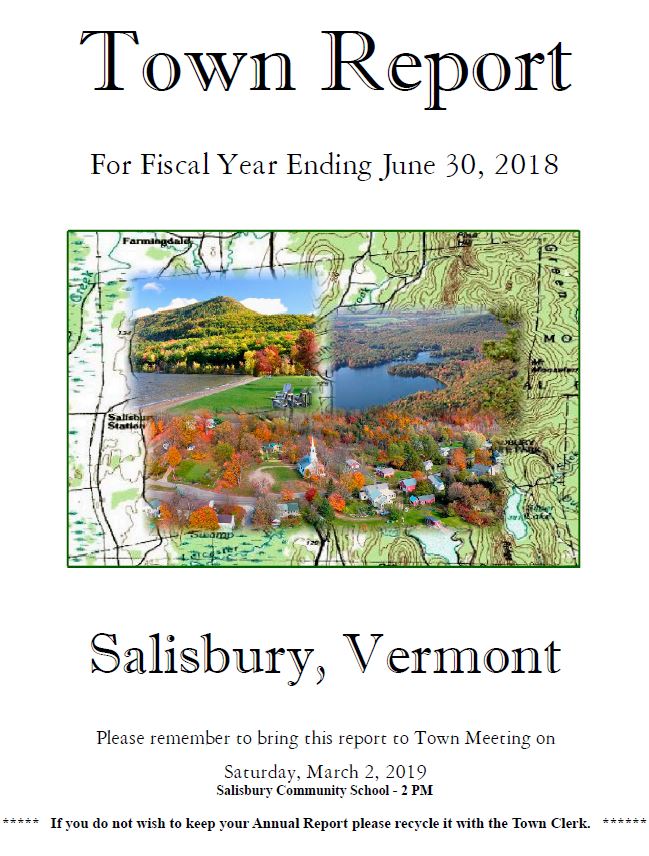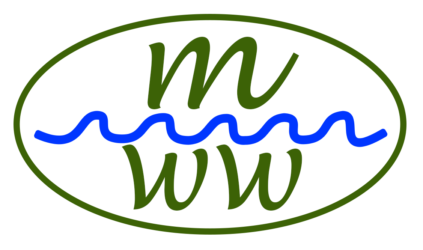
Vermont’s town clerks will soon be mailing us our town reports, and Salisbury has already posted a pdf of the new 2018 Salisbury Town Report at its website. It includes an annual report from the Brandon Leicester Salisbury Goshen Pittsford Insect Control District (BLSG) which will appear in town reports throughout the District. The BLSG report includes some good information and some that is misleading.
BLSG does a good job describing the ongoing Toxics Action Center (TAC) appeal of the state’s decision to re-authorize BLSG to spray chemical pesticides. However, BLSG mischaracterizes a few aspects of the lawsuit.
- They report that “TAC has raised only procedural questions about whether the fifty-page plan was drafted in sufficient detail.” There is nothing trivially procedural about BLSG’s failure to evaluate how their activities might endanger water quality and wildlife. There are obvious justifications for the state to require that anyone spraying toxic chemicals on public and private property demonstrate that they have considered and understood the environmental dangers inherent in the activity. BLSG is not entitled to ignore or belittle this legal requirement.
- BLSG reports that “The District’s board suspects that TAC’S underlying motivations in filing the appeal is an attempt to take advantage of the District’s limited resources.” The District’s board is wrong. TAC’s motivation is to ensure that BLSG follows the law so people and the environment are not endangered. Also, when select boards in most of the District towns agree to hand over to BLSG whatever taxpayer money BLSG asks for to pay its lawyers, the District does not have “limited resources.”
- BLSG reports that TAC has “a long bucket list of items they want incorporated into the plan that would severely limit our ability to provide effective mosquito control.” Discussions among attorneys during settlement negotiations are confidential and should not be discussed publicly. If BLSG wants to abandon this confidentiality protection, they should do so officially.
As they do in all of their public statements, BLSG made sure to include misleading information about insect-borne diseases in their annual report. I and others have repeated many times that Zika is not transmitted by mosquitoes anywhere north of Texas and Florida, yet Zika is mentioned in BLSG’s report as if we should be concerned about it in Vermont. This continued misinformation campaign is not harmless, and it has recently earned BLSG a public reprimand from Alyson Eastman, the Deputy Secretary of the Vermont Agency of Agriculture, Food & Markets.
Last month, Stephen Belcher, a member of the BLSG board of directors, wrote a letter to the editor to the Rutland Herald in which he included misinformation about Zika (that it was found in mosquitoes in Vermont). Deputy Secretary Eastman responded in the Herald stating that “The Zika virus has never been found in any mosquitoes in the state of Vermont.” She went on to explain that the mosquito species that transmit Zika don’t even live in Vermont: “Our targeted and more general surveillance has never turned up the presence of primary Zika vectors in Vermont.”
Eastman’s strongest rebuke is one that should be a wake-up call to residents in the BLSG District: “It is regrettable and irresponsible that this misinformation made its way into the public forum, particularly given that the source of the misinformation was someone who should understand the issues and concerns of their community.”
We should all want the organization with permission to spray toxic pesticides on our properties to be well informed, rational, and responsive to community concerns. It is obvious that BLSG is not there yet, and vowing in their annual report that “the BLSG Insect Control District has no intention of backing down” will not get them any closer.

